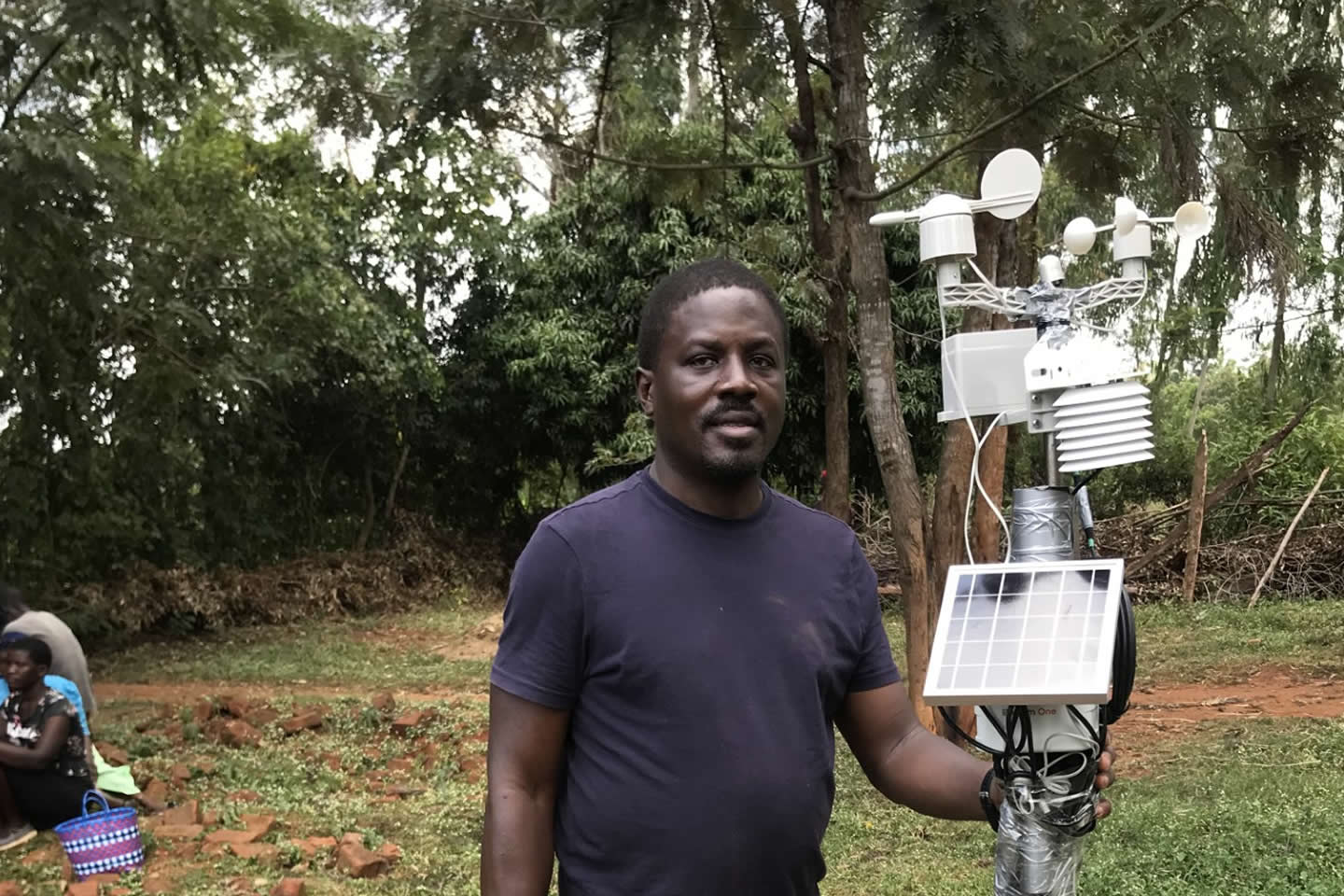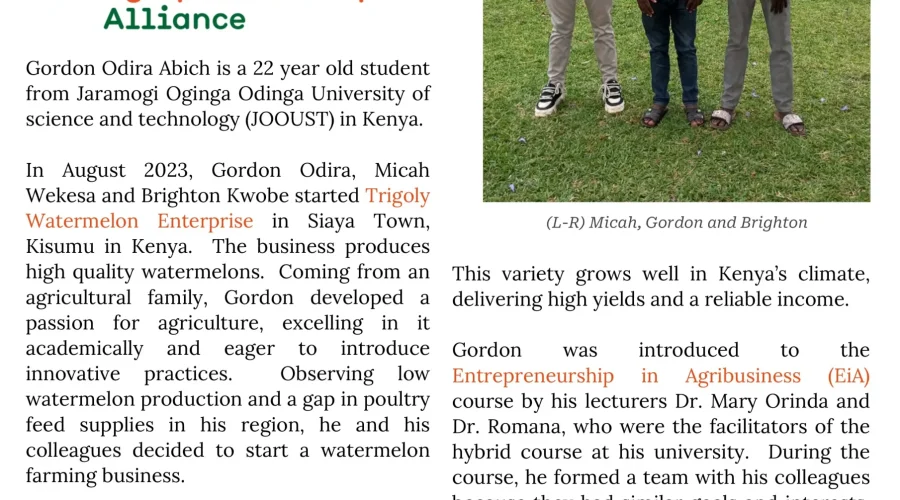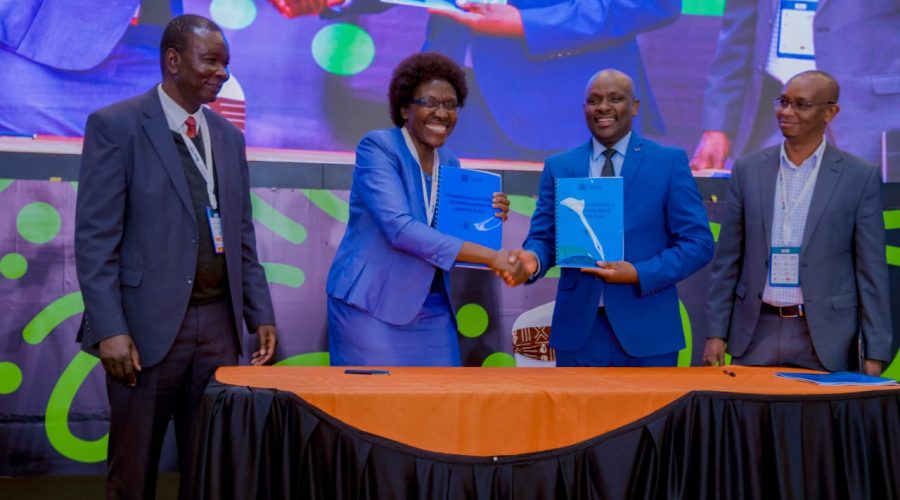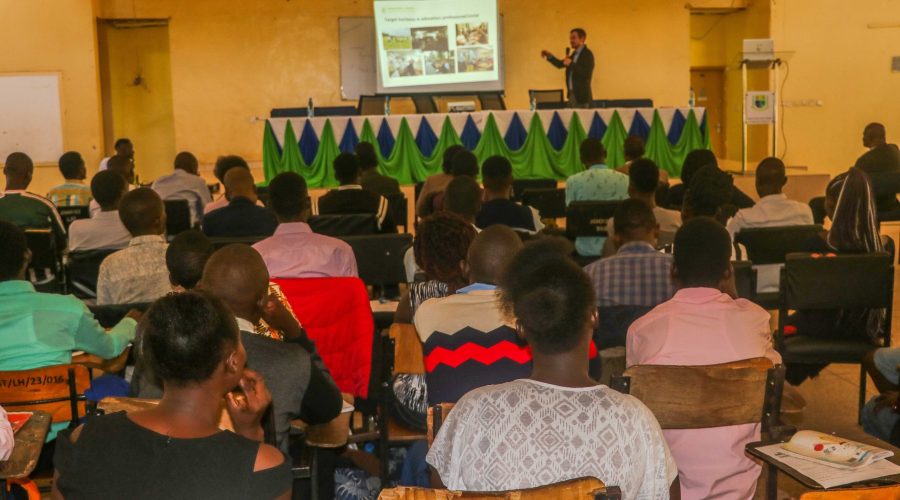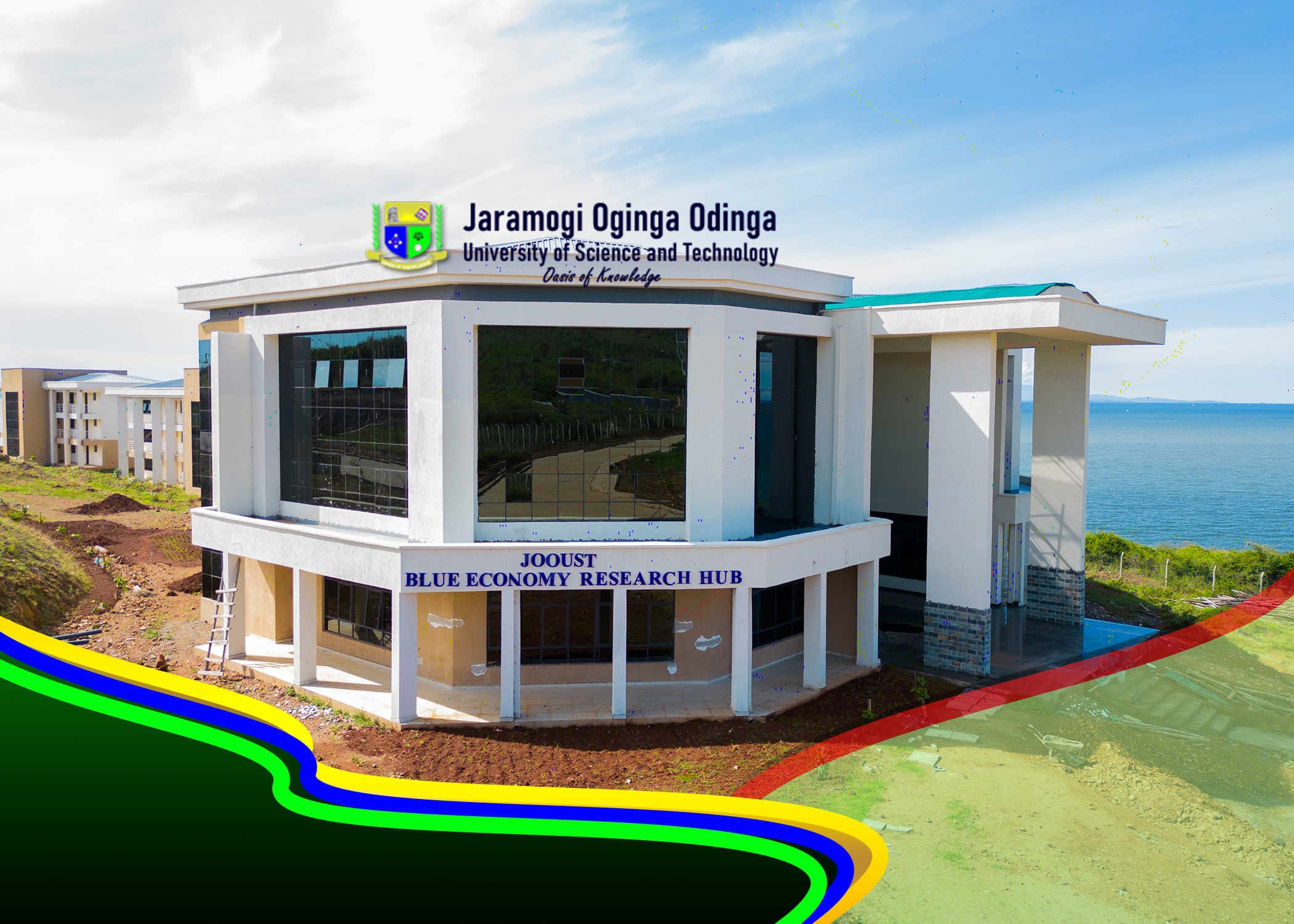As part of the ongoing efforts under the VLIR-IUC Project (Year 2), Kevin Onyango, a PhD researcher in Computer Science jointly enrolled at the University of Antwerp and Jaramogi Oginga Odinga University of Science and Technology (JOOUST), has made significant strides in modernizing data collection for agricultural research. Working on Sub-Project 4, Onyango successfully installed a weather station and soil condition monitoring sensors in Siaya County. Additionally, he deployed soil sensors in Kakamega and Trans-Nzoia Counties. This initiative marks a transition from manual data collection by extension officers to a more efficient, automated system powered by Internet of Things (IoT) technology.
Utilizing advanced IoT devices provided by IDLab in collaboration with Imec, Mr. Onyango is now able to gather real-time data on both weather patterns and soil conditions across the three counties. This data will be crucial for his research, which focuses on “Enhancing Decision Support in the Lake Victoria Basin using Machine Learning Models and Techniques.” The insights generated from this research will help provide small-scale farmers with actionable recommendations to improve their crop yields, driving both agricultural efficiency and sustainability.
Onyango’s installation and research efforts were supported by an esteemed team, including Prof. Silvance Abeka (Sub-Project 4 Kenyan Team Leader), Dr. Leonard Wakoli (Dean, School of SIIS), Dr. Joshua Agola (Onyango’s Kenyan PhD supervisor), Mr. Haileyesus Abera (PhD student at VUB and Team Leader for the VLIR-IUC project at Arba Minch University), Mr. Joseph Aguk (Research Assistant), and other dedicated members of Sub-Project 4.
Sub-Project 4 has a broader objective of addressing digital gender gaps in communities within the Lake Victoria Basin. Field trainings are regularly conducted to improve digital literacy, while ICT skills are integrated into the other four sub-projects. These efforts are part of innovative interventions aimed at increasing access to digital resources, enhancing health information systems, improving agricultural food systems, and promoting sustainable natural resource management.
This collaborative initiative demonstrates how cutting-edge technologies like IoT and machine learning can be leveraged to revolutionize agriculture and support informed decision-making in rural communities, paving the way for a more resilient and productive future.

